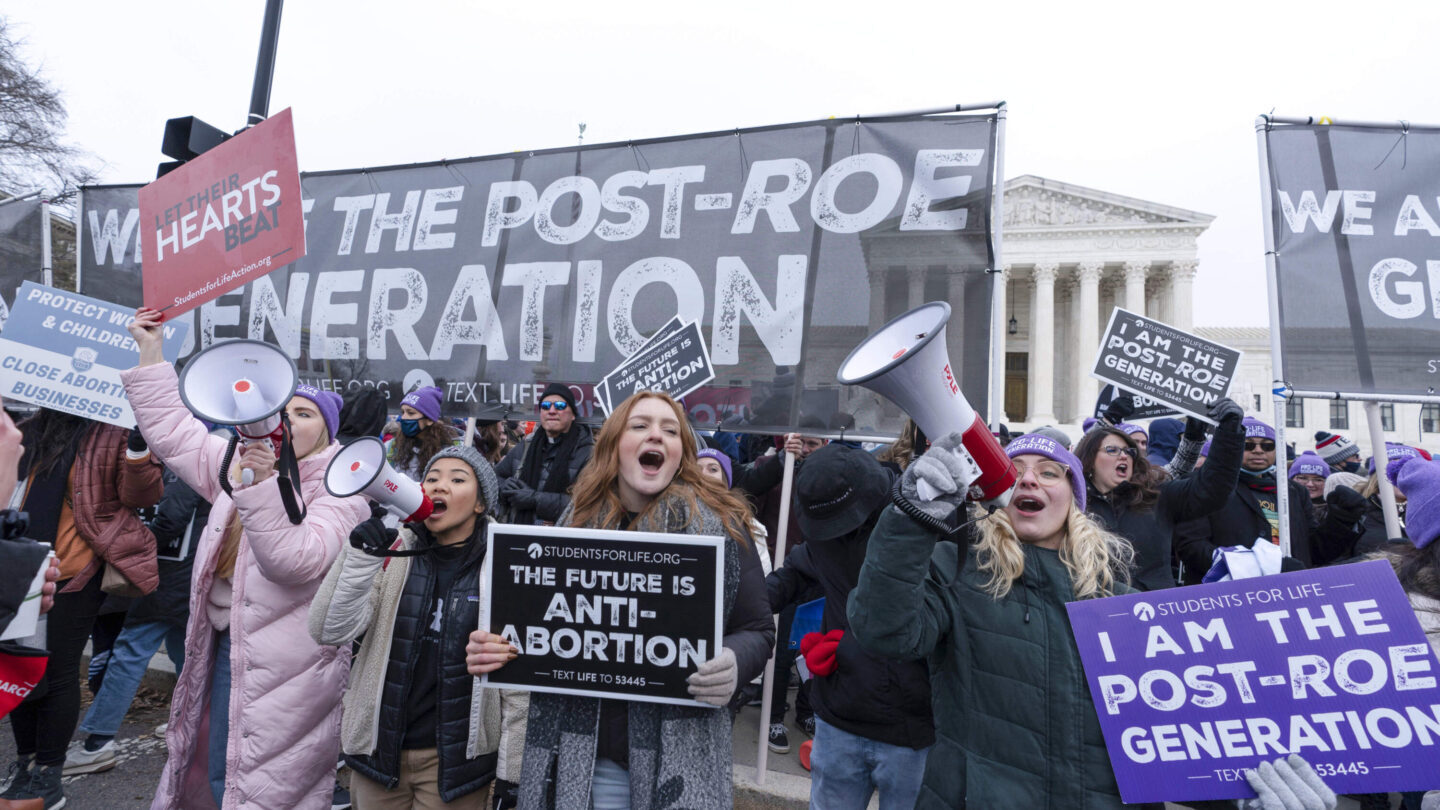Jess Mador
,
Christopher Alston
| WABE
October 26th, 2023
Georgia’s law banning abortions at around six weeks of pregnancy remains in place after a ruling from Georgia’s highest court on Tuesday.
The Supreme Court of Georgia reversed a lower court ruling that found parts of Georgia’s abortion ban were void from inception, allowing the law to stay in place and sending it back to a Fulton County court to consider other claims not addressed in this challenge.
The majority opinion on the state’s House Bill 481, also called the Living Infants Fairness and Equality (LIFE) Act, holds that the trial court “erred in concluding, based on since-overruled decisions of the United States Supreme Court, that the LIFE Act violated the U.S. Constitution when the Act was enacted.”
“The holdings of United States Supreme Court cases interpreting the United States Constitution that have since been overruled cannot establish that a law was unconstitutional when enacted and therefore cannot render a law void ab initio,” reads the majority opinion, authored by Justice Verda M. Colvin.
The majority opinion also found the trial court’s ruling “rests on a faulty premise — that, in Dobbs, the United States Supreme Court changed not only its interpretation of the United States Constitution but also the meaning of the Constitution itself,” saying this premise “conflict[s] with well-established, foundational principles of law that are essential to our system of government.”
“We are pleased with the court’s decision and will continue to defend the constitutionality of Georgia’s LIFE Act,” said Georgia Attorney General Chris Carr.
The decision marked the culmination of months of legal challenges over the ban, H.B. 481, which took effect about a month after the U.S. Supreme Court ruling that overturned Roe v. Wade abortion protections last year.
“Today’s ruling is not the end of this fight for women’s healthcare,” Andrea Young, executive director of the ACLU of Georgia, said in a statement. “Be clear: the right to abortion is on the ballot in 2024. Gov. Brian Kemp and the Georgia legislature acted to take away our rights. The Georgia legislature can restore our rights, and we must organize to elect a pro-choice legislature.”
Georgia State University Assistant Professor of Law Anthony Michael Kreis said H.B. 481’s abortion restrictions are headed back to the state Supreme Court.
“There is a 100% certainty that this will go back to the Georgia Supreme Court. I don’t see any way in which the state would concede if they lost or that the plaintiffs here would not take this back up to the Georgia Supreme Court,” he said.
And the lower court could move relatively quickly.
Fulton County Superior Court Judge McBurney has already heard oral arguments, and his ruling on H.B. 481’s constitutionality could come within the next few months.
Kreis called Tuesday’s state Supreme Court procedural decision a “pit stop.”
“This is this is the first act of a two-act play for the Supreme Court of Georgia. And so the litigation will go on. And really the question that everybody wants answered, I think the question of does the Georgia Constitution protect in a fundamental way the right to an abortion, that’s the question that remains open.”









